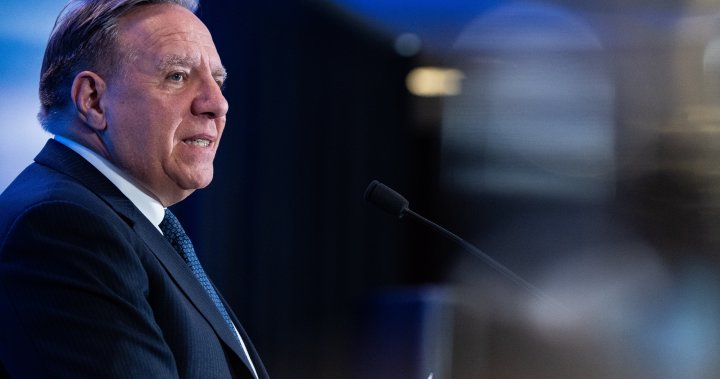Canada
‘Unjustifiable blow’: Quebec leaders dumbfounded by Trump’s aluminum tariffs

U.S. Tariffs on Aluminum: A Blow to Quebec’s Economy
Industry Fury and Political Backlash
The recent announcement by U.S. President Donald Trump to impose a 25% tariff on all steel and aluminum imports has sparked outrage among industry leaders and politicians in Quebec. The province, which is the largest supplier of aluminum to the U.S., sees this move as a direct and unjustified attack on its economy. Premier François Legault, who traveled to Washington, D.C., alongside other Canadian premiers, called the decision "totally unjustifiable" and vowed to defend Quebec’s interests and workers vigorously. François Racine, president and CEO of AluQuébec, echoed these sentiments, expressing disbelief at the announcement and warning that the tariffs would lead to significant price increases and further fuel inflation—a situation Trump himself has claimed to be fighting.
Economic Impact and Industry Concerns
The U.S. tariffs, set to take effect on March 12, have left industry leaders on both sides of the border scratching their heads. Racine described the move as a "bullying tactic" that will make North American products less competitive globally. With aluminum being a key component in many industries, the price hikes are expected to ripple across the economy, affecting everything from consumer goods to industrial machinery. Quebec’s aluminum industry, which generates $11.6 billion annually and employs over 40,000 workers, is particularly vulnerable. Unlike large corporations, the majority of these workers are employed by smaller processing companies that heavily rely on the U.S. market, making them disproportionately affected by the tariffs.
Quebec’s Central Role in the Aluminum Industry
Quebec’s importance in the aluminum industry cannot be overstated. The province produces 90% of Canada’s aluminum and supplies 60% of the aluminum used in the U.S., making it a critical player in North America’s aluminum supply chain. Canada, and specifically Quebec, is the fourth-largest producer of primary aluminum worldwide, with an annual production of 3.2 million metric tonnes. The aluminum sector is the second-largest economic driver in Quebec after aerospace, contributing $7.1 billion in export value and representing 10% of the province’s export market. The industry’s significance extends beyond economics; it is also a source of pride for Quebec, which touts its aluminum as "the greenest in the world" due to its reliance on renewable energy sources, particularly hydroelectric power.
Environmental Excellence and Economic Importance
Quebec’s aluminum industry stands out not only for its economic might but also for its environmental sustainability. With 97% of the province’s energy coming from renewable sources, the production of aluminum in Quebec generates significantly fewer greenhouse gases compared to other major producers like China and the Middle East. This clean production process is a key selling point for Quebec’s aluminum on the global market. However, the U.S. tariffs threaten to undermine this competitive advantage by making North American aluminum less cost-effective. The long-term consequences of this could be severe, with the danger of shifting production to regions with lower environmental standards but cheaper labor costs.
Trudeau’s Diplomatic Efforts and Historical Context
Prime Minister Justin Trudeau has pledged to work with the U.S. administration to highlight the negative impacts of these tariffs on both Canada and the U.S. Trudeau emphasized that the tariffs are "unacceptable" and will harm workers in both countries. A senior government official revealed that Trudeau discussed the issue with U.S. Vice-President JD Vance, focusing on the potential harm to Ohio, a state Vance previously represented in the U.S. Senate. This is not the first time the U.S. has targeted Canada’s aluminum industry; in 2018, Trump imposed similar tariffs on steel and aluminum, which lasted for about a year. The repetition of such measures has left Canadian leaders frustrated and seeking more permanent solutions to protect their industries.
Long-Term Implications and the Road Ahead
The tariffs imposed by the Trump administration have far-reaching implications for Quebec’s economy and the broader North American supply chain. Industry leaders warn that the increased costs will lead to higher prices for consumers, exacerbate inflation, and make North American products less competitive in the global market. For Quebec, the stakes are particularly high, as the aluminum industry is not only a major economic driver but also a source of regional pride and environmental leadership. As the situation unfolds, the focus will be on whether Canadian and U.S. leaders can find a resolution that protects workers, maintains economic stability, and preserves the environmental advantages of Quebec’s aluminum production.











